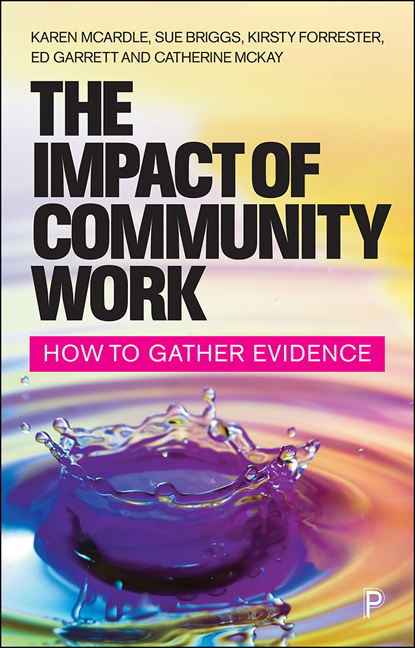14 - Using Others: Secondary Data
Published online by Cambridge University Press: 10 March 2021
Summary
Introduction
Pablo Picasso is a Cubist, one of the founders of a style of painting that abandons perspective with a single viewpoint. On one canvas, for example, he portrayed a chair from many different positions and in many geometric shapes – from above, from below, the legs, the seat. He superimposed these different views to get close to what he thought of as the quintessential truth of a chair. He believed that more than one perspective brought the observer closer to the truth.
We can use a similar approach in community work, specifically with regard to triangulation, which is a key term in this chapter and denotes a way of evidencing our work that combines many different viewpoints. To help explain the concept further, the hill walkers or climbers among you may have heard of trig points, a series of reference points that are used in surveying to determine a fact, such as the height of a mountain. The importance of Picasso and trig points for us is that we can use triangulation in a similar way to obtain more than one point of view about our work in the community. These different points of view help show the validity of any claim we make about our work in the community.
Showing the validity of your claims is crucial, as it may affect your own wellbeing, as well as that of your own work or projects and your participants. Triangulation of evidence gives your work additional credibility over evidence that comes from only one source. In times of austerity, it is particularly important to show that your work is valuable to ensure that it continues; indeed, your own employment may depend on it. The following case study shows how one of us, Kirsty Forrester, triangulated data for employability among Black, Asian and minority ethnic (BAME) people against her own observations.
Box 14.1 Case study for triangulation of evidence
There has been much negative publicity in the UK recently about migrants, including reports that they are a drain on public resources and unemployment benefits. This is certainly not true of the migrants with whom I work regularly. I wanted to get further data on this. I spoke to a data analyst in my organisation to ask if there was any data to confirm high levels of employment among BAME people.
- Type
- Chapter
- Information
- The Impact of Community WorkHow to Gather Evidence, pp. 225 - 246Publisher: Bristol University PressPrint publication year: 2020



